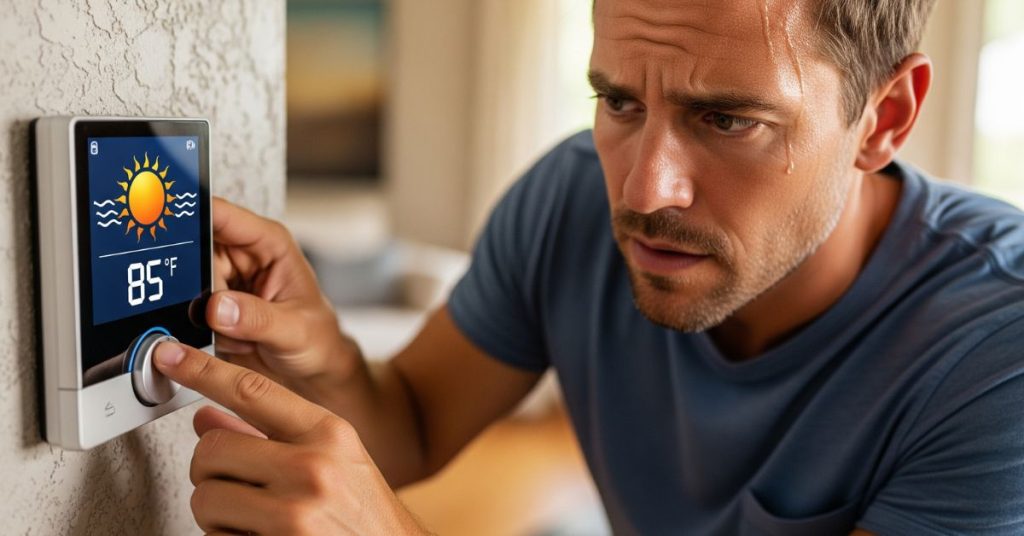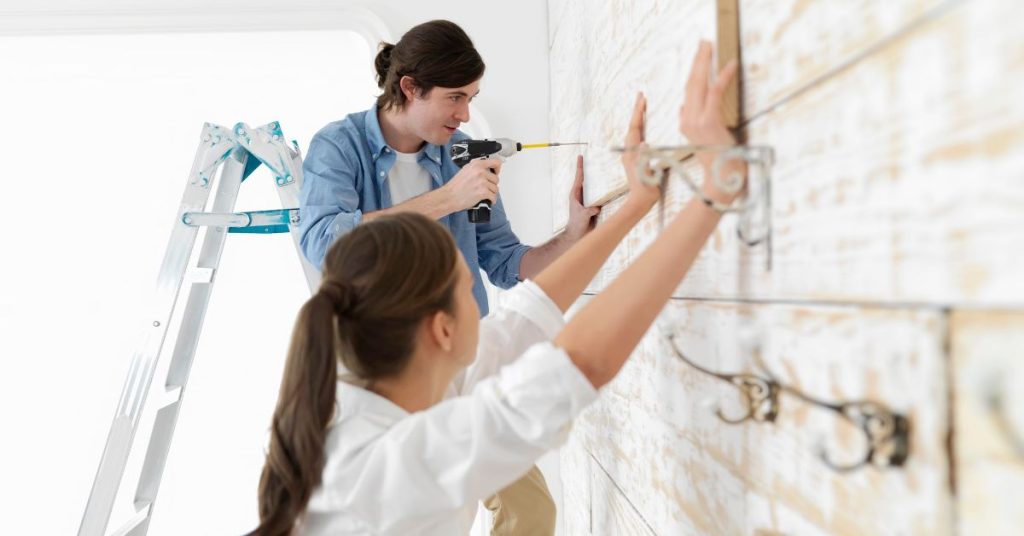Table of Contents
Upgrading HVAC before peak summer ensures efficient cooling, lowers energy bills, and prevents system failures during extreme heat, providing comfort when you need it most.
Key Takeaways:
- Avoid HVAC breakdowns during heatwaves
- Improve energy efficiency
- Lower summer utility costs
- Ensure indoor comfort during peak heat
- Beat contractor backlogs
As rising temperatures become the new normal, heatwaves are hitting harder and lasting longer. For many homeowners and businesses, the HVAC system is the frontline defense against unbearable heat. However, waiting until the hottest days arrive to realize your system is outdated or inefficient can lead to discomfort, higher energy bills, and even health risks. That’s why it’s smart to upgrade HVAC before heatwave season strikes.
The Rising Threat of Heatwaves
Heatwaves are becoming more intense and frequent due to shifting climate patterns, posing serious health risks, especially to vulnerable groups like the elderly, young children, and those with medical conditions. These extreme temperatures can lead to heat exhaustion, dehydration, and even life-threatening heatstroke. An outdated HVAC system may struggle to maintain safe indoor temperatures during such events. Without reliable cooling, your home becomes unsafe, making it essential to upgrade your HVAC system to ensure comfort, safety, and resilience during heatwaves.
Why Upgrade Your HVAC Before Extreme Heat Strikes
1. Prevent Unexpected System Failures
Older HVAC units are more likely to break down under stress, especially during extreme summer heat. Upgrading before peak temperatures ensures your system can handle the demand. This proactive step reduces the risk of emergency repairs and guarantees uninterrupted comfort when you need it most.
2. Improve Energy Efficiency
Modern HVAC systems use advanced technology like variable-speed compressors, smart thermostats, and higher SEER ratings to reduce energy consumption. Upgrading helps lower your utility bills while minimizing environmental impact. Efficient systems also cool your home faster and more evenly, making them ideal for surviving intense summer heat.

3. Enhance Indoor Comfort
New HVAC systems offer better temperature control, more consistent airflow, and improved humidity management. They eliminate common problems like hot or cold spots and help maintain ideal indoor conditions. By upgrading before peak heat, you ensure a cool, comfortable home even during the most extreme weather.
4. Benefit from Smart Technology
Upgrading your HVAC gives you access to features like Wi-Fi-enabled thermostats and smart home integration. These tools let you remotely control and schedule your cooling system, optimizing comfort and energy use. During heatwaves, smart technology helps keep your home cool without wasting energy or overworking the unit.
Key Signs You Need an HVAC Upgrade
Knowing when to replace your system is essential. Here are major indicators:
- Age of the System: Most HVAC units last 10–15 years. Anything older is likely inefficient.
- Frequent Repairs: If you’re calling technicians often, replacement is more cost-effective.
- Rising Energy Bills: A sudden increase in electricity costs is a sign of inefficiency.
- Uneven Cooling: If some rooms are hotter than others, your system may not distribute air properly.
- Strange Noises or Odors: These often point to failing components that can lead to breakdowns.
Cost Savings of Upgrading Early
Lower Energy Bills
Upgrading early to a high-efficiency HVAC system can reduce your cooling costs by 20–40%, offering immediate monthly savings and long-term benefits, especially during high-demand summer months.
Avoid Peak Season Price Hikes
HVAC prices and wait times soar during heatwaves. Upgrading before demand spikes lets you avoid inflated costs, rushed installations, and delays, ensuring your system is ready when needed.
Rebates and Incentives
Planning your upgrade early allows time to explore rebates, tax credits, and special financing. Many incentives reward energy-efficient upgrades but have deadlines, so acting ahead secures maximum savings.
Health and Safety Benefits
Heatwaves increase the risk of heat exhaustion, dehydration, and heatstroke, especially for children, seniors, and people with health issues. Older HVAC systems may struggle to keep indoor temperatures safe. In contrast, upgraded HVAC systems improve indoor air quality with advanced filtration, reducing allergens, dust, and pollutants—crucial for respiratory health.
One of the smartest money-saving tips for summer AC costs is upgrading your system early. It boosts efficiency, lowers bills, and protects your family’s health and comfort during extreme summer heat.
Environmental Advantages of HVAC Upgrades
Modern HVAC systems are designed to be eco-friendly, offering significant environmental benefits alongside improved performance. These systems consume less energy, helping reduce greenhouse gas emissions and lowering your home’s overall carbon footprint.
In addition, many upgraded units use environmentally safer refrigerants, which have less impact on ozone depletion and global warming. Choosing an energy-efficient HVAC system is a responsible step toward sustainability, benefiting both your household and the planet while also aligning with green living goals and future environmental standards.
Preparing Your Home Before the Heatwave Season

Even after upgrading, maintenance plays a crucial role. To maximize performance before a heatwave:
- Change air filters regularly for optimal airflow.
- Schedule annual HVAC maintenance to identify potential issues early.
- Seal leaks and insulate ducts to prevent cool air loss.
- Install blackout curtains to keep out excess heat.
- Use programmable thermostats to maintain steady cooling efficiently.
- Clear debris from outdoor AC units to ensure proper ventilation.
- Keep ceiling fans clean and running counterclockwise to support cooling.
Why Acting Early is the Smartest Choice
The benefits of upgrading your HVAC before peak heatwaves go beyond comfort. Early upgrades help ensure energy efficiency, long-term savings, health protection, and peace of mind during the most intense summer months. By acting before demand spikes, you avoid inflated prices, rushed installations, and potential system failures.
New systems cool more effectively while using less energy, protecting your household from dangerous heat and poor air quality. Planning ahead keeps your home safe, efficient, and prepared for whatever extreme weather lies ahead.
Conclusion: Stay Cool, Save More, Live Better
Upgrading your HVAC system before peak heatwaves ensures efficient cooling, lower energy bills, and reliable performance when you need it most. Older systems often fail under extreme heat, causing discomfort, costly repairs, and health risks. A modern upgrade improves energy efficiency, enhances indoor comfort, and provides better air quality—all essential during intense summer temperatures.
Don’t wait for a breakdown during a heatwave. Prepare early and enjoy peace of mind with professional HVAC services from HVAC Alliance Experts. Contact us today to schedule your upgrade and keep your home cool, safe, and comfortable all summer long.
FAQs
Most HVAC systems last 10–15 years. If yours is older or showing signs of inefficiency, it’s time to consider an upgrade.
Yes, modern units use advanced technology that can cut energy costs by 20–40%. Over time, the savings offset the upfront investment.
Delaying can lead to system failures during peak heat and higher repair or installation costs. You may also face longer wait times due to high demand.
Many utility companies and manufacturers offer rebates, tax credits, or financing for energy-efficient models. Planning ahead helps you secure these savings.
Simple steps like replacing air filters, sealing ducts, and scheduling annual maintenance improve performance. Using smart thermostats and blackout curtains can also keep cooling efficient.


